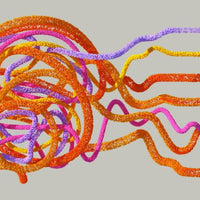Clear Skin and a Balanced Gut: The Power of a Vegan Lifestyle
A vegan lifestyle involves abstaining from all animal products. This dietary choice often includes motivations such as ethical concerns, environmental sustainability, and health benefits. One of the most profound benefits of adopting a vegan diet is its positive impact on skin health and gut balance.
Consuming a plant-based diet can lead to clearer skin and improved digestive health due to the high intake of vitamins, minerals, fiber, and antioxidants. This article explores the relationship between a vegan diet, skin clarity, and gut health, offering a comprehensive understanding of how these elements are interconnected.
The Link Between Diet and Skin Health
The skin is the body’s largest organ, and it reflects overall health. Diet plays a crucial role in skin appearance and function. A vegan diet, rich in fruits, vegetables, nuts, seeds, and whole grains, provides essential nutrients that support skin health. These nutrients include vitamins A, C, and E, which are known for their antioxidant properties, helping to protect the skin from damage caused by free radicals. Additionally, the high water content in many plant foods helps to keep the skin hydrated, improving its texture and appearance.
Inflammation is a key factor in many skin conditions, including acne, eczema, and psoriasis. Animal products, particularly dairy and processed meats, can contribute to inflammation. A vegan diet reduces this risk by eliminating these pro-inflammatory foods and emphasizing anti-inflammatory foods like leafy greens, berries, and nuts. This reduction in inflammation can result in fewer breakouts, reduced redness, and an overall improvement in skin tone.
Understanding Gut Health
Gut health refers to the balance of microorganisms in the digestive system. A healthy gut contributes to overall well-being, affecting everything from digestion to immunity to mental health. The gut microbiome, which consists of trillions of bacteria, plays a significant role in this process. A balanced gut microbiome supports efficient digestion, nutrient absorption, and a strong immune system.
Diet significantly influences the composition of the gut microbiome. Fiber, which is abundant in a vegan diet, is crucial for gut health. It serves as a prebiotic, feeding the beneficial bacteria in the gut. This promotes a healthy balance of microorganisms, preventing the overgrowth of harmful bacteria. Fermented plant-based foods like sauerkraut, kimchi, and tempeh also provide probiotics, which further support a healthy gut microbiome.
The Role of a Vegan Diet in Gut Health
A vegan diet, rich in fiber, promotes regular bowel movements and prevents constipation. Fiber also helps to regulate blood sugar levels and reduce cholesterol, contributing to overall health. Moreover, the high intake of antioxidants and anti-inflammatory compounds in plant foods helps to protect the gut lining from damage and inflammation.
Any reputable nutrition and gastrointestinal doctor will emphasize the importance of a diet rich in fruits, vegetables, and whole grains for gut health. These foods provide the necessary nutrients and fiber to maintain a healthy gut microbiome. Furthermore, a vegan diet excludes dairy, which can cause digestive issues in many people, particularly those with lactose intolerance. By eliminating dairy and other potential irritants, a vegan diet can help to reduce bloating, gas, and other digestive discomforts.

The Connection Between Gut Health and Skin
The gut-skin axis is a term used to describe the connection between gut health and skin health. This relationship is mediated by the immune system and the production of metabolites by gut bacteria. When the gut microbiome is imbalanced, it can lead to systemic inflammation, which may manifest as skin issues such as acne, rosacea, or eczema.
A healthy gut supports a healthy immune system, which in turn helps to maintain clear and healthy skin. By promoting a balanced gut microbiome, a vegan diet can help to reduce skin inflammation and improve skin conditions. For example, studies have shown that individuals with acne often have an imbalance of gut bacteria. By increasing the intake of fiber and probiotics through a vegan diet, it is possible to restore this balance and improve skin health.
Additionally, the elimination of dairy from a vegan diet can have a direct impact on skin clarity. Dairy has been linked to acne and other skin issues due to its potential to increase insulin-like growth factor 1 (IGF-1), a hormone that can stimulate sebum production and contribute to acne development. By avoiding dairy, a vegan diet can help to reduce the risk of these skin issues.
Practical Tips for Adopting a Vegan Lifestyle for Skin and Gut Health
Transitioning to a vegan lifestyle requires careful planning to ensure that all nutritional needs are met. Here are some practical tips for adopting a vegan diet to support skin and gut health:
- Incorporate a variety of fruits and vegetables: Aim for a colorful plate to ensure a wide range of vitamins, minerals, and antioxidants. Leafy greens, berries, and citrus fruits are particularly beneficial for skin health.
- Choose whole grains: Opt for whole grains like quinoa, brown rice, and oats, which provide fiber and essential nutrients for gut health.
- Include nuts and seeds: These are excellent sources of healthy fats, protein, and antioxidants. Flaxseeds, chia seeds, and walnuts are particularly beneficial for their omega-3 content.
- Add fermented foods: Incorporate fermented plant-based foods like sauerkraut, kimchi, and tempeh to boost your intake of probiotics.
- Stay hydrated: Drinking plenty of water helps to keep the skin hydrated and supports digestion.
- Avoid processed vegan foods: While convenient, many processed vegan foods can be high in sugar, salt, and unhealthy fats. Focus on whole, unprocessed foods for optimal health benefits.
- Consider supplementation: While a well-planned vegan diet can provide most nutrients, some individuals may benefit from supplements such as vitamin B12, vitamin D, and omega-3 fatty acids.
Final Thoughts on the Power of a Vegan Lifestyle
A vegan lifestyle offers numerous benefits for both skin health and gut balance. By emphasizing a diet rich in fruits, vegetables, whole grains, nuts, seeds, and fermented foods, individuals can achieve clearer skin and a healthier gut.
The elimination of pro-inflammatory animal products and the inclusion of fiber-rich plant foods support a balanced gut microbiome and reduce systemic inflammation, which can lead to improved skin conditions. For those considering a vegan lifestyle, careful planning and a focus on whole, unprocessed foods can ensure that all nutritional needs are met, resulting in optimal health and well-being.








0 comments